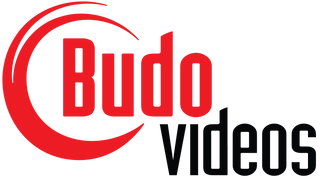Everyone has to start somewhere when they are wanting to compete, so once you have honed your skills as best you can and have your white belt safely secured, the next progression is to try and prepare yourself for your first BJJ Tournament.
You can take a look at a list of the best BJJ Tournaments around so that you might be able to target where and when you might want to compete. It also makes sense to try and pick up some useful tips and advice from seasoned referees and competitors, who could give you some valuable insights into what to expect from the moment you confirm your entry.

Preparation is key
You want to try and get the best possible experience from competing in your first tournament, so the ideal approach is to give yourself somewhere between six and eight weeks in order to allow adequate opportunity to prepare as well as you can for the event.
It is perfectly understandable that you are going to be apprehensive and slightly nervous about the prospect of putting yourself under the scrutiny of a tournament environment, so it would not be that advisable to throw yourself into the deep end and enter yourself into a competition where you have not allowed an adequate amount of time to prepare as fully as possible.
Understanding weight classes
It would always be a good idea to liaise with your regular coach regarding what weight class you wish to compete in.
It should be pointed out that the weight classes represent the upper limits of each category rather than the bottom. Make enquiries to establish whether the specific rules for that tournament dictate if the weigh-in is just prior to the match itself, the day before, or when you arrive on the morning of the event.
This is highly relevant, as the timing of the weigh-in could affect whether you make the weight category limit, as these timings can make a difference of anything between three and five pounds in your weight.
Depending on the information you get about the weigh-in procedure and timings, you can then decide if you need to consider entering a dropping down a weight class, to avoid any problems.

Well-drilled
Every good competitor has a game plan that they are going to work to during the competition, so make sure you are giving yourself the best possible chance of having a positive experience, by formulating a basic game plan.
It is essential that you try to be well-drilled and practiced in basic techniques like rolling and sparring, as well as working on a few go-to escape moves from bad positions, that you can put into action during the match, without losing valuable momentum and points.
Talk to your regular coach about how to build a basic game plan that incorporates a series of escape moves, as well as practicing your takedown and guard pull from a standing position.
Remember that you may well be competing in as many as five matches in a relatively short space of time, so work on ways to conserve your energy, which can be done more easily when you have a basic game plan that allows your moves to flow as naturally as possible.
Consider your training schedule
Many sports competitors develop a schedule that allows them to peak at just the right time, and this is something you want to try to do so that you are primed on the day for your chosen competition.
This is an area where your coaches and training partners can give you some guidance and assistance in preparing for your competitive experience.
Have a conversation with your coaches about your current training schedule and try to evaluate whether you need to step it up and gradually increase the amount of time you are spending on the mat each week, building up to the optimum point where you are able to peak at just the right time.

Learning the referee commands
There are four fundamental commands from the referee that you need to familiarize yourself with, so that you can respond in the appropriate manner during the heat of competition.
Combatche is the command to stop or start the fight. Parou simply means stop and don’t move, which is generally called when standup goes out of bounds. Lutche is a stalling penalty and Falta is a relatively new command which is used when a penalty is awarded.
It is always going to be a challenge to get tournament-ready but if you prepare as well as you can and heed the advice of coaches and referees who are familiar with what is required, you should give yourself the best chance of enjoying your competitive experience.
Ellie Wallis became interested in martial arts as a child, and hasn't stopped as an adult, even taking on the role of referee at kids tournaments on occasion. She writes about BJJ hoping to encourage others to give it a try!


2 commentaires
Thank you for sharing this information. I’m a beginner in BJJ and would like to compete in tournaments in the future. Thank you also for the ‘’best BJJ Tournaments’’ resource.
This might seem like common sense to some people but make sure you are nice and warmed, which is actually harder than it sounds at a lot of tournament venues. Most venues just have concrete floors, so it might be worthwhile to bring a yoga mat to stretch on. Also, IBJJF doesn’t have any warm up mats, so you’ll have to be creative in ways to get your blood flowing. I like to pummel with a buddy. Just don’t go on the mat cold.